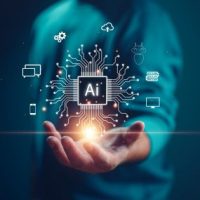U.S. Copyright Office Issues Part One of AI Guidance

Earlier this year, the United States Copyright Office issued part one of its guidance on artificial intelligence (AI) and copyright. Notably, the government body strongly recommended legislative action in order to modernize copyright law to address the new technology. Here, our Florida copyright attorney highlights key things to know about the AI guidance from the Copyright Office.
Background: Generative AI Creates Serious Copyright Law Questions
Artificial intelligence (AI) has major implications for U.S. copyright law. There are big questions about whether or not the law is properly developed to handle unique issues raised by the rise of AI. Broadly explained, generative AI—often based on large language models (LLMs)—is a technology that is capable of producing complex digital content, including writing, art, and even videos. The most popular AI were largely trained with data scraped from the web, including copyright protected data. The Copyright Office is studying the matter to analyze the law and identify unresolved issues.
Initial Copyright Regulatory Guidance Focused on “Deep Fakes”
In July, the Copyright Office released Part One of its report on AI and copyright law. It is focused largely on the issue of “deep fakes.” Deep fakes are digitally created or altered videos, images, or audio recordings that realistically but falsely depict individuals or events. The Copyright Office report discusses the significant challenges posed by digital replicas (deep fakes). Other issues being analyzed by copyright regulators include:
- The scope of copyright protections for AI-generated works;
- Liability for copyright infringement committed with AI tools; and
- The use of copyrighted protected materials for the training of artificial intelligence.
Copyright Office Conclusion: Urgent Need for Federal Action
The key takeaway from the Copyright Office AI report is its recommendation that “urgent action” is needed by federal lawmakers. The Copyright Office noted that current law—both at the federal level and state level—are inconsistent and insufficient to deal with the challenges posed by AI, including digital replicas (deep fakes). Indeed, federal law was deemed “too narrow” to adequately address the issue. Further, some states have already passed state-level copyright laws regarding “deep fakes”, whereas other states have taken no action. The Copyright Office made an official recommendation that congress develop legislation focused on copyright law and AI. Notably, the government body offer the following specific guidance for any legislation on the matter:
- Comprehensively define digital replica to include video, image, and audio recordings that have been digitally created or manipulated to realistically but falsely depict an individual;
- Deep fake copyright laws should protect everyone—not merely celebrities;
- New regulations should introduce liability for creating and distributing deep fakes;
- Congress should carefully consider secondary liability for online service providers; and
- Lawmakers should address First Amendment issues through a balancing test.
Speak to a Copyright Lawyer in South Florida
At Perkins Law – Brand Protection, our Florida brand protection attorneys have the skills and experience to handle all types of copyright matters. If you have any questions about AI and copyright, we are here as an intellectual property law resource. Contact us now to set up your fully private case assessment. We handle complex copyright cases throughout South Florida.
Source:
copyright.gov/ai/
